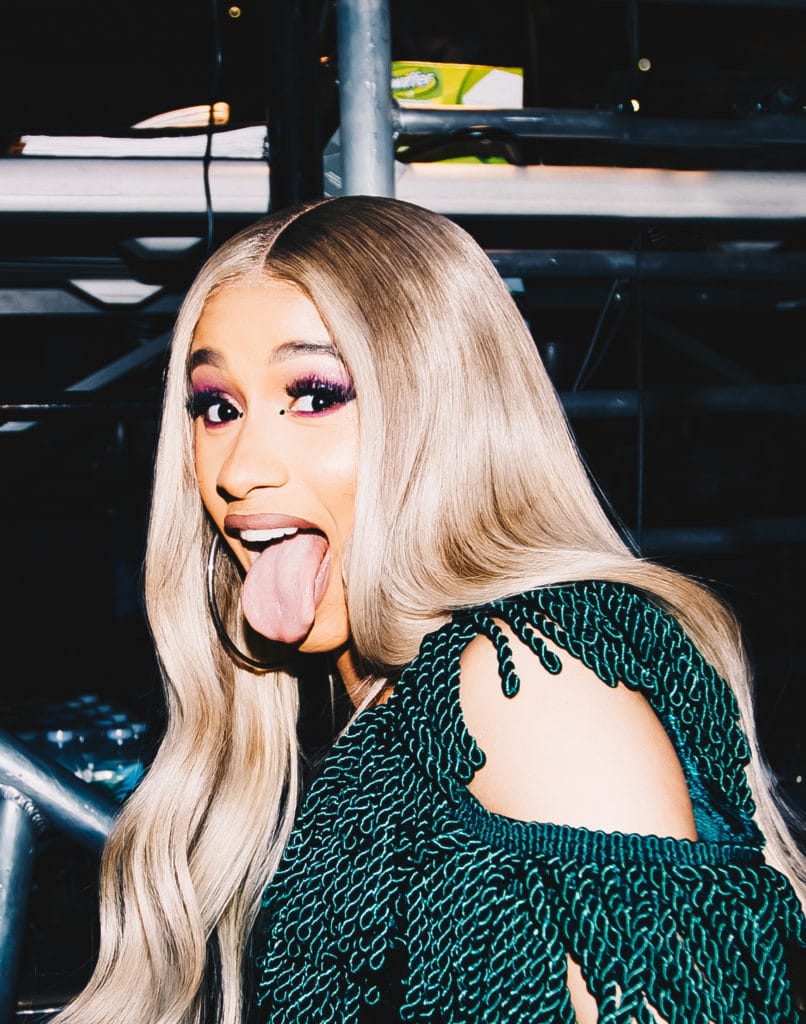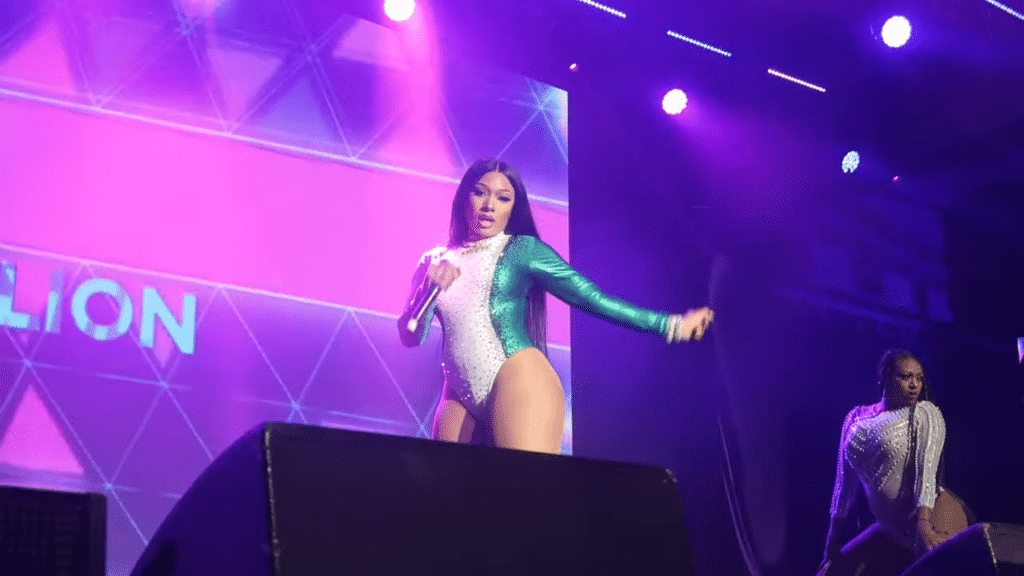By: Liam W. Cooney | Staff Writer
*DISCLAIMER: Op-eds are independently written and do not reflect the views of the Mosaic Student Newspaper or Salve Regina.
Cardi B and Megan The Stallion’s billboard-topping hit “WAP” has been back in a row of controversy as of late, ever since the two artists put on what you could call a very raunchy and sexually-suggestive performance at the recent Grammy awards. First released in early August of 2020, the song was an instant hit, topping the charts at #1 for three straight weeks this past summer. With all the renewed controversy surrounding the song, stemming from the performance, I would like to share my thoughts on the matter, highlight the two sides of this debate, as well as to look at what others have to say.

Sparking controversy for good reason, the song’s lyrics depict extremely sexual actions, which go on par with much of the content produced by both Cardi B and Megan. The opening lyrics of the song read:
I said, certified freak
Seven days a week
Wet-a** p***y
Make that pull-out game weak, woo (ah)
And of course, the song’s title and acronym, “WAP” refers to female genitalia, or “Wet A** P***y.”
In my opinion, Cardi B’s “WAP” is yet another example of the unfortunate perversity that has become not only accepted, but celebrated within our society. A large portion of this toxicity can now be found within most pop and rap songs, from both female and male artists. I believe that a song that suggests a male reproductive organ being “parked” into a female reproductive organ should never in the slightest be praised as an anthem of any good or worthy cause. That perceived good and worthy cause, for those who champion this song, and the recent performance, could include (but not be limited to): female empowerment, Black female empowerment, sexual freedom, and a show of rights and freedoms for the LGBTQ+ community. This last piece mentioned, I would say, comes in to play mostly with the Grammys performance, with Cardi and Megan performing a dance routine of the song together, suggestively gyrating and scissoring on stage. Each of the above mentioned causes are of a worthy stature: the continued uplifting of females from all races and walks of life is something that should continue to occur in our society.
My basic retort to this happening through a song like this however, is that the lyrics, ideas, and what I would call extreme perversion that is portrayed in all of this is something that should not be celebrated in our world. I myself am the older brother of three younger sisters. I do not wish for them to see Cardi B or Megan The Stallion as their role models or heroes as they mature into adulthood and grow into independent young women. I would much rather have them look towards other impactful female figures such as Malala Yousafzai, J.K. Rowling, Amelia Earhart, Michelle Obama, or Bethany Hamilton: all women who have gained notoriety for their groundbreaking and inspiring efforts. I’d much rather want my sister to become a teacher or veterinarian, as opposed to a stage dancer. You can say “WAP” is certainly groundbreaking, maybe even barrier-breaking, but is it inspiring to young girls in a positive way? I would argue it is unfortunately not, although it is being portrayed by many as such.
My own opinions have been outlined, but like any topic or contested social issue, it’s more than beneficial to get a perspective from someone else. In this case specifically, someone from a different background and demographic of your own. Myself being a Caucasian teenage male from Rhode Island, it’s crucial to get a minority opinion in the mix. Here is how Salve Regina sophomore Ciara Marro-Wilson, a Biochemistry major (on 3+3 PharmD track) from Staten Island, New York chose to share her feelings about “WAP,” and the recent Grammys performance:
“There is no doubt about it that WAP is an extremely catchy song. I know many agree and its popularity is evident as it climbed the charts on many music platforms within a day and even became a Tik-Tok phenomenon. Although I do find it catchy, I honestly can’t help but also laugh. It truly amazes me how we got to this point in music. This song is, to me, the most inappropriate rap song I think I have ever heard and the fact that there are songwriters who can write such a song blows my mind. After watching their Grammy performance and reading the reviews on it, I don’t understand how several individuals have argued that it was an “electric” performance.”

Where the debate begins, however, is with those who claim the provocative lyrics of the song are not only “catchy,” as Marro-Wilson mentioned, but rather acceptable and even worthy of being championed. An article shared by Complex writer Brianna Holt soon after the song was released claimed the tune to be “the epitome of female empowerment,” and named Cardi B and Megan The Stallion to be “powerhouses of female sexuality, independence, and dominance.” This sort of positive reaction to the performance, and the performance itself, had sparked a considerable amount of backlash, often from right wing conservative political figures. California congressional hopeful James Bradley (R) was quoted saying “Cardi B and Megan Thee Stallion are what happens when children are raised without God and a strong father figure.”
Marro-Wilson brought up a point I hadn’t yet thought about, telling me, “As much as I know that many believe this anthem is all about female empowerment, sexuality, and pleasure, I feel this message is overshadowed by its inappropriate lyrics and sexual depictions. I think the message of empowerment would have been more prominent, and one that most people noticed and were drawn to, if the song was not so explicit and inappropriate. But today the business is all about making music that sells and will gain popularity, and for some artists, the way that they grab the attention of buyers is through making songs that are catchy and inappropriate.”
That last point specifically caught my attention, and leads me to the next portion of this article. “WAP” is by no means the only inappropriate, sexually suggestive rap song or American pop tune that has ever fallen upon our ears. There have been a number of artists that have written billboard-topping and award-winning lyrics that can be considered equally as harmful and disgusting. And as Marro-Wilson accurately mentioned, many of these songs use outrageous lyrical depictions because yes: it will sell, it will be catchy, and it likely increase their popularity. Rappers like the late Pop Smoke, DaBaby, and Tekashi 6ix9ine, have produced a lot of successful music, much of which is littered with extremely sexually suggestive, often degrading lyrics. In Pop Smoke’s “For The Night,” he alludes to a pimp-like attitude towards women, belittling them as nothing more than a rotation, essentially one for every day of the week.
Look, if I call you bae, you bae for the day
Or bae for the night, you not my wife
She want a killer to f**k all night
I wanna f**k on a th*t, gimme head all night
So, is “WAP” and its controversial performance the only issue here? Absolutely not. This may be more so a larger issue we have in our music culture. The occasional profane language is not going to affect the lives of those who listen to it. However if those young kids who listen to a song like “WAP,” or “For The Night,” were to take these lyrics (and performances) to heart, I think it’s safe to say we as a society are not exactly promoting good standing and morally compassed citizens, with respect for both genders on an equal footing.
My opinions at this point have now clearly been stated. I find Cardi B’s “WAP” to be disgusting and highly inappropriate. Cardi B and Megan The Stallion are not individuals I would necessarily want my three young sisters to look towards as they grow into young adulthood. I’m not accusing these two people of any criminal wrongdoing; I’m not even accusing them of being bad people. I’m simply articulating that their song, their performance, and their continued support of the song’s lyrics, makes them lose credibility as legitimate role models for any woman (or any person) in our world. I understand there are of course two sides to every argument, this argument being rejuvenated with the recent Grammys performance. I argue that this type of music is simply not something that should be promoted, championed, or seen as a show of empowerment in our society.
Images:
“File:Cardi B Photo by Chris Allmeid (cropped).jpg” by Chrisallmeid is licensed under CC BY-SA 4.0
“File:Megan Thee Stallion Lagos 04.png” by BABYGIRLTOS on YouTube is licensed under CC BY 3.0














